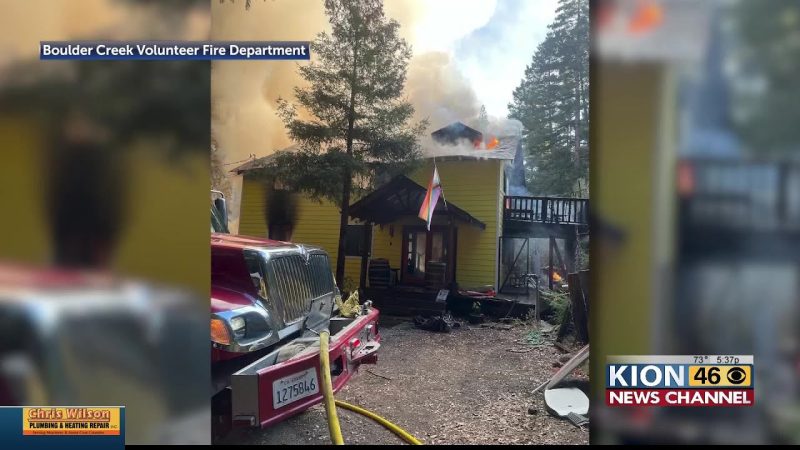“Eazy-E and the White House: A Hip-Hop Legacy”

In the vibrant tapestry of American history, unexpected threads often weave themselves into the fabric of cultural and political landscapes. One such unexpected yet influential figure in the realms of hip-hop and popular culture was Eric Wright, famously known as Eazy-E. The intersection of Eazy-E and the White House may seem improbable at first glance, but a deeper exploration reveals the profound impact this hip-hop icon had on shaping social narratives and transcending boundaries.
The Rise of Eazy-E:
Born in Compton, California, in 1964, Eazy-E emerged from the tumultuous streets of South Los Angeles to become a pioneering force in the hip-hop scene during the late 1980s. Co-founder of the iconic rap group N.W.A (N***as Wit Attitudes), Eazy-E played a pivotal role in bringing West Coast rap to the forefront of the genre. With raw, unfiltered lyrics that reflected the harsh realities of inner-city life, N.W.A’s music, including the controversial anthem “Straight Outta Compton,” struck a chord with a generation seeking authenticity and a voice.
Eazy-E’s Entrepreneurial Spirit:
Beyond his skills as an artist, Eazy-E possessed a keen entrepreneurial spirit. In 1987, he co-founded Ruthless Records, a label that would go on to launch the careers of influential artists such as Dr. Dre and Ice Cube. Eazy-E’s business acumen was as sharp as his rhymes, and he quickly became a notable figure in the music industry. His influence extended beyond the studio, sparking a cultural revolution that challenged societal norms and brought attention to the struggles faced by marginalized communities.
Social Commentary through Music:
N.W.A’s lyrics were a stark reflection of the social and political climate of the time, addressing issues such as police brutality, systemic racism, and economic inequality. Eazy-E, along with his fellow N.W.A members, used their platform to shine a light on the harsh realities faced by African Americans in urban America. The group’s uncompromising approach to social commentary drew both praise and criticism, with their music becoming a lightning rod for debates on freedom of expression and the role of hip-hop in society.
The White House Connection:
Eazy-E’s connection to the White House was not one of direct political engagement but rather a reflection of his impact on shaping cultural conversations. During the late 1980s and early 1990s, N.W.A’s music sparked nationwide debates about the state of race relations, policing, and the role of government in addressing social issues. The controversial track “F*** tha Police” drew the ire of law enforcement agencies and political figures, leading to the group facing scrutiny from various quarters.
While the White House itself may not have embraced Eazy-E’s music, the cultural ripple effect was undeniable. The debates sparked by N.W.A’s lyrics prompted a broader discussion on the need for social change and justice. Eazy-E, through his music and persona, became a symbol of resistance and a voice for those who felt marginalized and oppressed.
Legacy Beyond the Mic:
Eazy-E’s life was tragically cut short in 1995 due to complications related to AIDS, but his legacy endured. In the years following his death, the impact of N.W.A’s music became even more apparent as subsequent generations of artists acknowledged their influence. Eazy-E’s contributions to the genre were posthumously recognized when N.W.A was inducted into the Rock and Roll Hall of Fame in 2016.
The White House, as a symbol of political power and influence, may not have directly embraced Eazy-E, but the cultural shifts catalyzed by his music echoed in the corridors of power. The issues raised by N.W.A’s lyrics persisted and evolved, eventually becoming part of a broader national dialogue on racial injustice and police reform.
Eazy-E’s influence extended beyond the realms of music, transcending socio-political boundaries. His story became emblematic of the challenges faced by African Americans in the pursuit of success and recognition. The White House, as an institution, became a backdrop to the larger narrative of social change that Eazy-E and N.W.A helped initiate.
Conclusion:
In the annals of American history, the connection between Eazy-E and the White House may not be a traditional one, but it is undeniably significant. Eazy-E’s journey from the streets of Compton to the forefront of the hip-hop scene marked a cultural shift that reverberated far beyond the confines of the music industry. Through his music and entrepreneurial endeavors, Eazy-E challenged the status quo, sparking conversations about race, inequality, and justice.
While Eazy-E may not have stood on the steps of the White House, his impact was felt in the hearts and minds of those who resonated with his music. The legacy of N.W.A continues to influence artists and activists, reminding us that the power of expression can transcend boundaries and create lasting change. In the intersection of Eazy-E and the White House, we find a unique chapter in the story of American culture—one where hip-hop, as a powerful medium, challenged the establishment and left an indelible mark on the nation’s conscience.
-
Did Eazy-E ever visit the White House?
No, there is no evidence or record of Eazy-E visiting the White House during his lifetime. Eazy-E, born Eric Wright, was a prominent figure in the hip-hop scene, but he did not have direct political engagement with the White House.
-
Was Eazy-E’s music ever acknowledged by the White House?
No official acknowledgment of Eazy-E’s music by the White House has been documented. The controversial nature of N.W.A’s lyrics, particularly in songs like “F*** tha Police,” led to criticism from law enforcement and conservative figures, making it unlikely for the White House to endorse or acknowledge their music.
-
Did Eazy-E and N.W.A have any interactions with political figures during their career?
While N.W.A’s music often addressed social and political issues, there is no substantial evidence of direct interactions between the group and political figures. The impact of their music, however, sparked national debates on topics such as race relations and police brutality.
-
How did Eazy-E and N.W.A influence social and political discussions in the 1980s and 1990s?
N.W.A’s lyrics were a raw and unfiltered reflection of the challenges faced by African Americans in urban America. Their music, addressing issues like systemic racism and police violence, became a catalyst for broader discussions on social justice. The controversies surrounding their music fueled debates on freedom of expression and the role of hip-hop in addressing societal issues.
-
Was Eazy-E involved in any political activism during his career?
Eazy-E was not widely known for direct political activism. His influence was primarily through the medium of music, using N.W.A’s platform to shed light on the struggles of marginalized communities. While the group’s lyrics were politically charged, Eazy-E’s activism was more implicit in challenging societal norms through his music.
-
How did Eazy-E’s legacy endure beyond his lifetime?
Eazy-E’s contributions to hip-hop and the music industry, both as an artist and an entrepreneur, left an enduring legacy. Despite his untimely death in 1995, N.W.A’s impact continued to resonate, influencing subsequent generations of artists. The group’s induction into the Rock and Roll Hall of Fame in 2016 further solidified Eazy-E’s lasting impact on the genre.
-
Did Eazy-E’s legacy impact discussions on AIDS and healthcare?
Eazy-E’s public announcement of being diagnosed with AIDS in 1995 brought attention to the virus and its impact on the African American community. His diagnosis sparked conversations about HIV/AIDS awareness and the importance of healthcare in minority communities.
-
How has the perception of N.W.A’s music evolved over time?
N.W.A’s music has evolved from being controversial and provocative in the 1980s to being recognized as a vital cultural and historical force. The group is often acknowledged for its role in shaping the narrative around racial issues and police brutality, contributing to the evolution of hip-hop as a powerful social and political commentary





